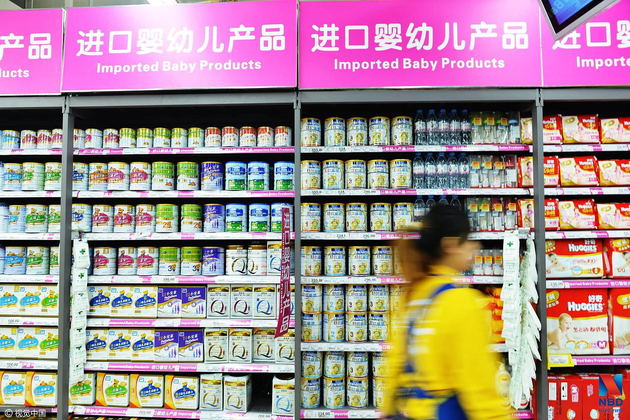
photo/NBD
Nov. 13 (NBD) -- The online sales of Wythe Nutrition hit 110 million yuan (16.6 million U.S. dollars) just two hours after Singles' Day carnival ticked off. This international milk powder supplier has once again felt the strong purchasing power of Chinese consumers.
It is noticed that Wythe, Mead Johnson and other foreign milk powder producers began to eye China's third-and fourth-tier cities.
In September, Wythe's SMA brand of formula officially hit China market with its focus on the third-and fourth-tier cities in China. Lu Junxiang, general manager of Wyeth SMA unit in China, said that the company hopes that SMA formula will gain 5 percent of the market share in China's 3rd- and 4th- tier cities, which could worth around 5 billion yuan (753.6 million U.S. dollars).
Lu said that the company has made great efforts to expand in the third and fourth cities but past efforts got limited results. However, this time, Wyeth made some adjustments to their marketing channels before launching the new products. Work has been done to explore regional channels in addition to dealers at the provincial level and to forge operation with new partners to set up professional distribution networks, added Lu.
Milk industry expert Wang Dingmian told NBD that with the implementation of registration rules for the formula milk powder, suppliers, restrained by limited formulas, become quantity-driven in order to survive. According to the formula registration rules, in principle, one enterprise could not register more than three series of nine different kinds of formulas.
Song Liang, senior milk formula analyst, said the new rule can greatly reduce the number of local milk powder producers in the third and fourth tier cities. He estimated that about 2/3 of them will be driven out of the market, leaving room for 15 billion yuan (2.3 billion U.S. dollars) untapped in 2018.
NBD noticed that domestic milk powder producers have gained handsome profits by expanding their footprints to 3rd-and 4th-tier cities in China. Yili reported a revenue of 52.1 billion yuan (7.9 billion U.S. dollars) from January to September this year, a year-on-year increase of 13.51 percent.
Foreign milk producers have long been playing in the first-and second-tier Chinese cities. With the advance of e-commerce, their products were gradually made available for customers in the third-and forth-tier Chinese cities. However, challenges remain. First, the market is fragmented and how to build a huge marketing team still poses a big challenge. Second, foreign milk brands are usually costly, which is appealing for distributors, but not for customers. Moreover, 3rd-and 4th- Chinese cities have their own regional market characteristics.
Email: tanyuhan@nbd.com.cn


 川公网安备 51019002001991号
川公网安备 51019002001991号





